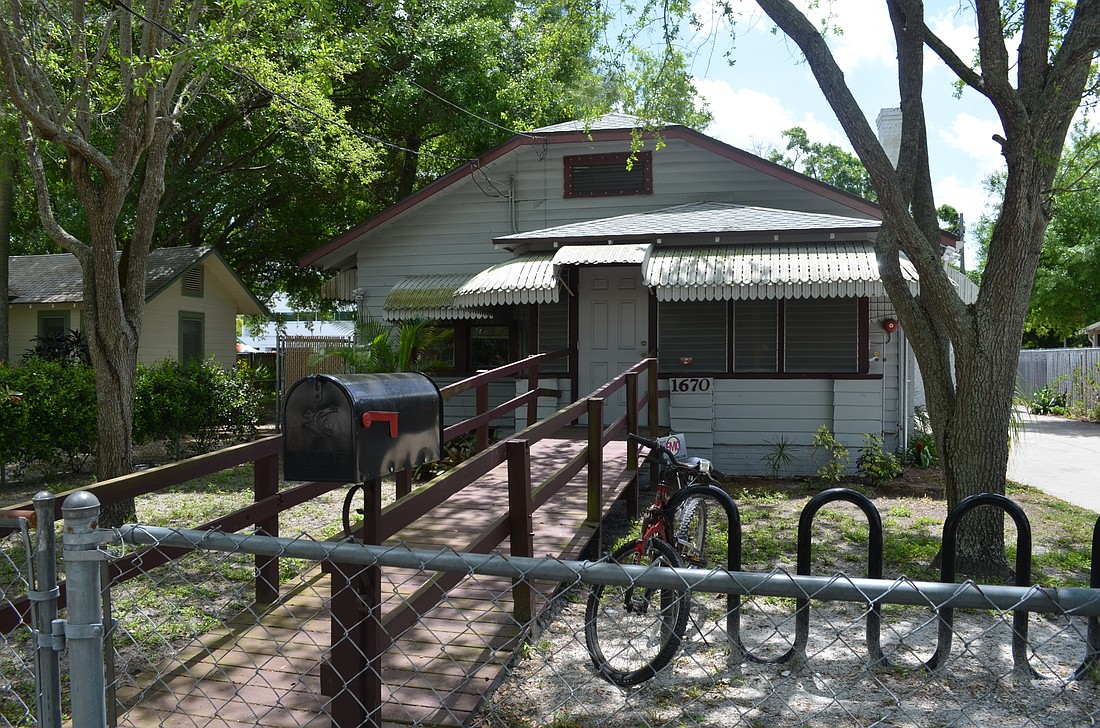- April 27, 2024
-
-
Loading

Loading

Despite objections from Gillespie Park residents, the Sarasota City Commission approved a plan Monday that will combine two social service providers at one campus within the neighborhood.
Bethesda House of Catholic Charities, an HIV/AIDS community center located at 1670 Fourth St., will become the new home for Caritas, an outreach ministry focused on providing emergency assistance to people with acute financial needs. Caritas had previously operated at 1651 Second St., now the future site of the planned HuB apartment complex.
On first pass, the changes don’t seem too onerous on the neighborhood. Caritas will operate on weekdays from 9 to 11 a.m., just two hours per day. The approval also comes with the condition that Bethesda House ends its soup kitchen and food pantry services.
The Gillespie Park Neighborhood Association ultimately declined to take a decisive stand on the proposal either way. For some who live in the immediate vicinity of Bethesda House, however, the changes are anything but uncontroversial.
“All the neighbors are against it,” said Scott Needham, who has lived across from Bethesda House for 16 years. “You go three streets over, and they don’t care, because they don’t see the impact of it.”
Both the Planning Board and the City Commission voted 4-1 in favor of Bethesda House’s proposal. On both occasions, the dissenting vote suggested there needed to be more consideration given to the effects the plan would have on Gillespie Park.
“I have questions about adding services for homeless people in a residential neighborhood,” City Commissioner Susan Chapman said. “I have questions on the impact of concentrating these services in District 1.”
A March Planning Board meeting brought more speakers in support of the project than opposed to it. Many of those speakers had ties to the charities in question, however.
“They don’t care, because they don’t see the impact of it.” — Scott Needham
Before that meeting, four residents sought and qualified for “affected person” status — which means they own property within 500 feet of the project site. All four residents opposed the plans.
Needham echoed Chapman’s concerns regarding the concentration of social services. He says the area around Bethesda House generates about a dozen calls for police service annually, with gatherings forming on the street before and after the center opens daily.
Needham believes the new accessory facility for Caritas’ operations will just exacerbate the existing problems.
Neither the Bethesda House nor Caritas are homelessness service providers. While Bethesda House is focused on HIV/AIDS outreach, Caritas is focused on people with acute financial needs — things like imminent rent or utility or car payments.
Peter Roustis-Arroyo, CEO of the Catholic Charities Diocese of Venice, said there have been few complaints tied to the Bethesda House. He said the organizers are committed to coexisting with residents, and that adding Caritas still means business as usual.
“We’ve fenced it in and we’ve improved the lighting there,” Roustis-Arroyo said. “We want to work with our neighbors.”
“It’s the fear factor. People thought, ‘Oh, it’s going to mean more services coming into the neighborhood.’” — Linda Holland
Gillespie Park Neighborhood Association President Linda Holland thinks the opposition was aimed at the neighborhood’s broader homelessness problem. Holland lives a few blocks away from Bethesda House, but says she’s personally never seen any issues at the community center.
“It’s the fear factor,” said Holland, who spoke in favor of Bethesda House’s plans at the Planning Board meeting. “People thought, ‘Oh, it’s going to mean more services coming into the neighborhood, more of an expansion.’”
Even after the City Commission approved the plans, Needham said he’s not giving up his opposition. He’s reaching out to lawyers to get insight on what options remain available to him — which speaks to his level of concern about Bethesda House’s impact on his property.
“I’m stuck; I’m across the street,” Needham said. “I can at least look into the legality of what they’ve allowed.”
There’s another wrinkle in the city’s approval of the new Bethesda House plans. The center has operated for more than two decades, but the city can’t find any historical evidence authorizing the facility’s creation.
The primary building on the site was built to be a single-family house, and the nonresidential use wouldn’t have been permitted under early ’90s zoning.
Linda Holland, a longtime Gillespie Park resident and neighborhood association president, remembers opposition to Bethesda House when it was first proposed. She doesn’t think there was any formal demonstration against the plans, however, and she isn’t certain if that was a choice residents actively made.
“If they didn’t go through a more formal process at that time, maybe there wasn’t an opportunity to do that,” Holland said. “I just quite frankly don’t remember.”
Former Mayor Kerry Kirschner, who spoke in favor of the plans to incorporate Caritas into the Bethesda House campus, served on the City Commission from 1985 to 1991. At Monday’s meeting, he attested that city officials did, in fact, formally approve the charity’s plans to operate in Gillespie Park.
Either way, city staff saw the application process as an opportunity to ensure Bethesda House is actually in compliance with the proper regulations. Today’s zoning does allow for community services on the property in question, although the facility’s food services are no longer permitted and must be discontinued as a condition of the city’s approval